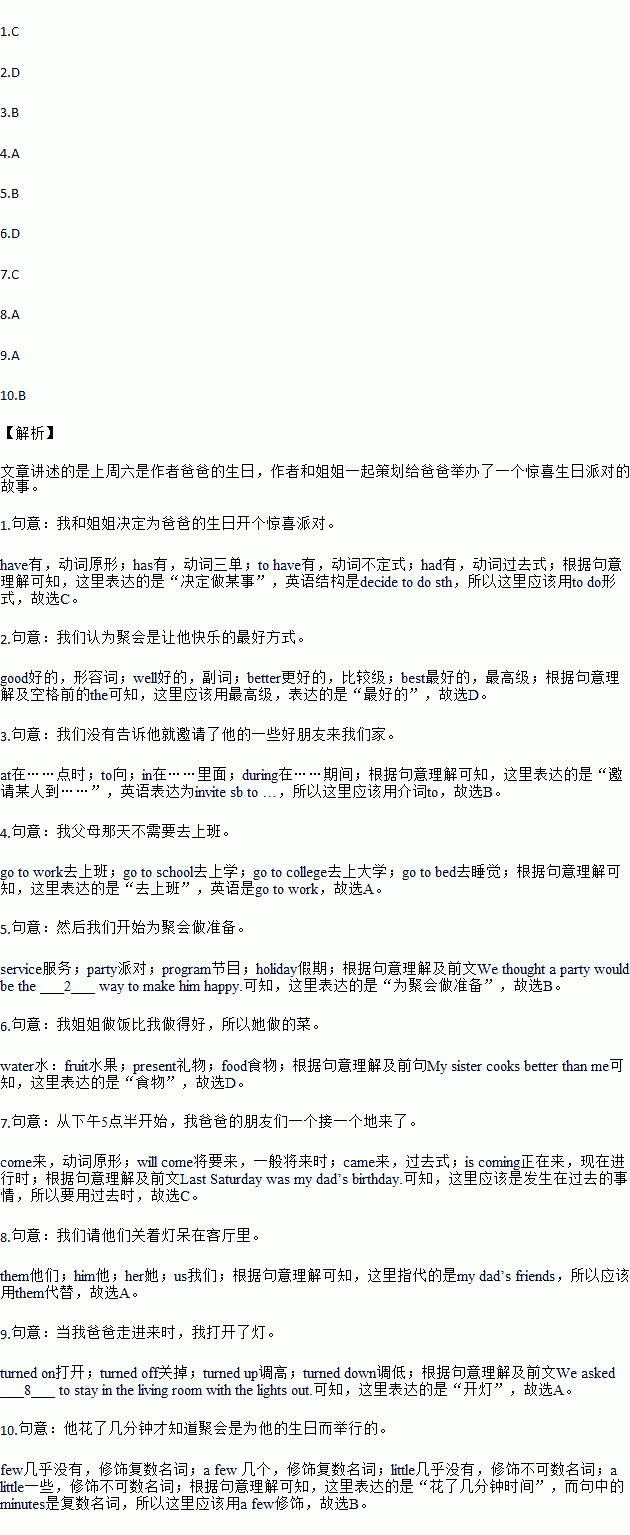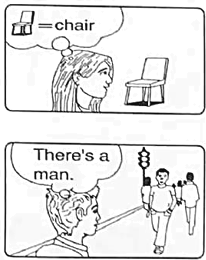题目内容
Last Saturday was my dad’s birthday. My sister and I decided ______ a surprise party for our dad’s birthday. We thought a party would be the ______ way to make him happy. We invited some of his good friends _______our home without telling him.
My dad’s birthday was on Saturday, my parents didn’t need to ________ that day. They went to visit my grandparents in the morning. Then we started to prepare for the _______. My sister cooks better than me, so she cooked the _______. And I bought something to decorate(装饰) the living room. From 5:30 p.m., my dad’s friends ______ one by one. We asked _______ to stay in the living room with the lights out. About half an hour later, my parents came back. When my dad walked in, I ______ the lights. It took him _______ minutes to know that the party was for his birthday. He was surprised and very happy. We were all happy at the party.
1.A.have B.has C.to have D.had
2.A.good B.well C.better D.best
3.A.at B.to C.in D.during
4.A.go to work B.go to school C.go to college D.go to bed
5.A.service B.party C.program D.holiday
6.A.water B.fruit C.present D.food
7.A.come B.will come C.came D.is coming
8.A.them B.him C.her D.us
9.A.turned on B.turned off C.turned up D.turned down
10.A.few B.a few C.little D.a little
 阅读快车系列答案
阅读快车系列答案

